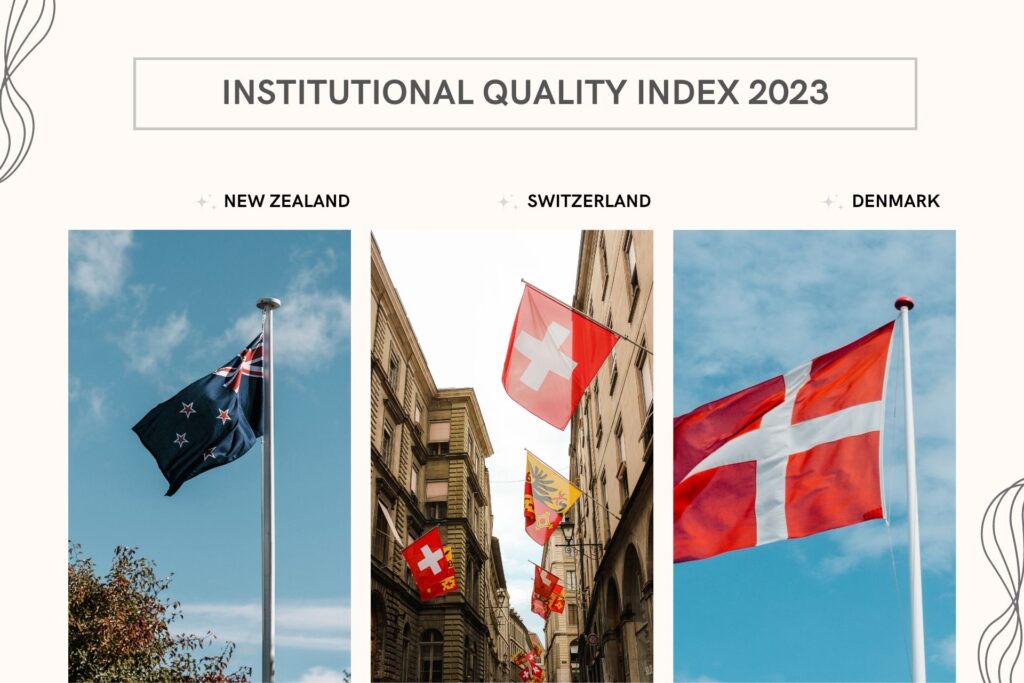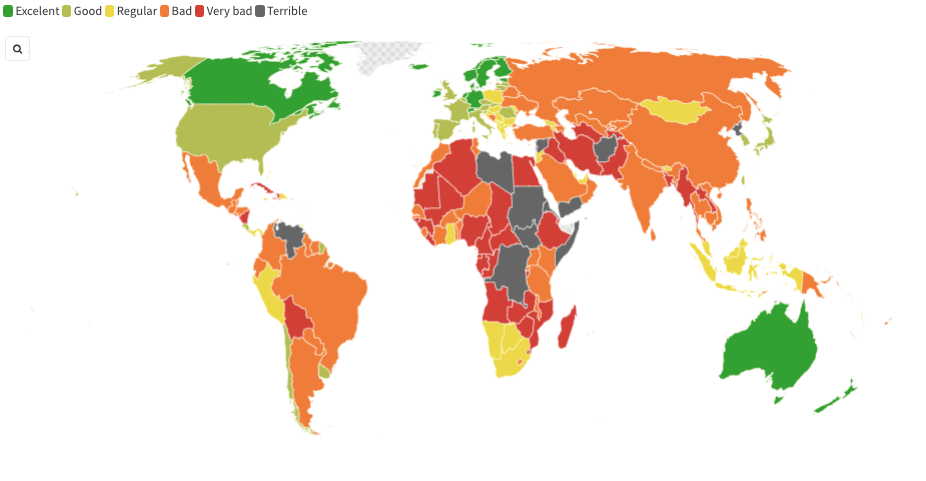
In the latest edition of the Institutional Quality Index compiled by the Liberal Network for Latin America (Relial), Denmark, Switzerland and New Zealand stood out as the countries with the strongest institutions. Along with Finland, these three countries have topped the index since it was first published in 2007.
The publication is produced annually and focuses on rating the quality of political and economic institutions in 184 countries around the world using eight factors: rule of law, transparency, freedom of the press, democratic openness, economic prosperity, investment environment, market access, and economic freedom.
This year, the most significant drops in institutional quality were seen in Lebanon — falling from 141st to 160th — Turkey, and Botswana, each falling 12 spots. Meanwhile, the most significant signs of improvement were seen in Ecuador — moving up 16 spots — followed by Kenya, the Dominican Republic, and Romania, moving up 11 spots each.
The bottom of the ranking is populated by authoritarian countries: North Korea, Venezuela, and Eritrea ranked in the bottom 3 spots and have moved little or not at all over the last few years.
The table below shows the full ranking of all the countries.

Western Europe and North America remain at the top for institutional quality, but the most significant progress since the launch of the index has come from African and Asian countries — including Rwanda, Côte d’Ivoire, Kyrgyzstan and Indonesia — that were among the lowest ranked at first and now stand in the middle of the ranking.
A similar phenomenon can be seen in certain Eastern European countries — Romania, Croatia, Albania and Georgia — which have progressed from “poor” to ” average” institutional quality. For Romania, this is the first year the country has ranked among those with “good” institutional quality.
In contrast, the sharpest declines were seen in Latin America, a region that is now mostly inhabited by people living in countries with poor institutional quality. Nicaragua, El Salvador, and Bolivia are the worst affected by this. Still, only 6 of the 18 countries in the region have improved in terms of institutional quality since 2007: Guatemala, Peru, Colombia, Costa Rica, Uruguay and Ecuador.
Why is it important to assess institutional quality?
The index was created by Relial under the premise that, without solid institutions, any apparent progress can disappear in a short time or be washed out with a change of government. As such, the Index assesses the performance of various institutions that are important for the proper functioning of democracies and helps think tanks to identify the strengths of their countries and work on the areas that need to be improved.
This year, we aimed to make the index known not only to member associations, but also to the general public. We thus undertook various outreach initiatives of our own and in collaboration with other organizations to appear in the media and to have our own experts talk about the index in their own countries. As a result, we were featured in the national press in 8 of the 18 Latin American countries with articles, and radio and television interviews.
The aim is to leverage collaborative work among network members to turn the index into a decision-making tool for improving institutional quality.

